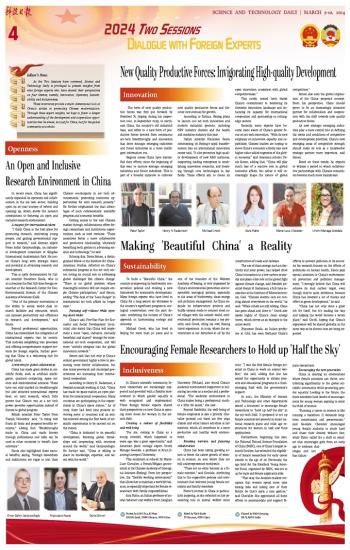
 |
The term of new quality productive forces was first put forward by President Xi Jinping during his inspection tour, in September 2023, to northeast China, the country's old industrial base, and refers to a new form of productive forces derived from continuous sci-tech breakthroughs and innovation that drive strategic emerging industries and future industries in a more intelligent information era.
Regions across China have intensified their efforts, since the beginning of this year, to nurture strategic emerging industries and future industries. This is part of a broader initiative to cultivate new quality productive forces and discover new avenues for growth.
According to Xinhua, Beijing plans to launch 100 sci-tech innovation and modern industrial projects, including NEV industry clusters and the health and medicine industry this year.
Italian scientist Francesco Faiola commenting on Beijing's rapid transformation into an international innovation center said, "It also promotes high-quality development of new R&D institutes, supporting leading enterprises in establishing innovation consortia, and breaking through core technologies in key fields. These efforts aim to create an open innovation ecosystem with global competitiveness."
This newly coined term shows China's commitment to bolstering its domestic innovation landscape and enhancing its capacity for international cooperation and partnership in cutting-edge sectors.
Recently, some experts have become more aware of China's greater focus on sci-tech innovation. "With its new emphasis on innovative capacity and capabilities, Chinese leaders are hoping to move China's economic activity into new higher value-added segments of the global economy," said American scholar Denis Simon, adding that, "China will play much less of a reactive role in global economic affairs, but rather it will increasingly shape the nature of global competition."
Simon also sees the global implication of the China-proposed concept. From his perspective, China should prove to be an increasingly attractive partner for collaboration and cooperation with the shift towards new quality productive forces.
As new strategic emerging industries play a more central role in defining the terms and conditions of competitive and development priorities, China's new emerging areas of competitive strength should make its role as a transborder strategic partner more important, said Simon.
Based on these trends, he expects to witness a period in which collaborative partnerships with Chinese researchers become much more mainstream.







